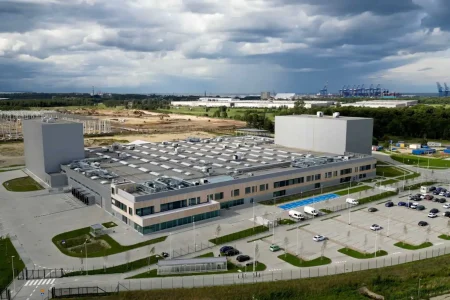In the pursuit of carbon neutrality and the reduction of greenhouse gas emissions, green hydrogen has emerged as a pivotal component of Europe’s renewable energy strategy.
Produced through the electrolysis of water using renewable energy sources, green hydrogen holds the promise of clean, versatile energy for various sectors, including industry and transportation. However, the challenge of efficiently transporting this clean gas has been a topic of debate and innovation.
One of the central questions in the realm of hydrogen transportation is whether existing natural gas pipelines can be adapted to transport hydrogen or if an entirely new infrastructure is necessary. This question has profound implications for the future of hydrogen as a clean energy source.
The European Commission appears to have made a resolute choice by endorsing the creation of a dedicated hydrogen transportation network. This network is meticulously designed to ensure the safe and efficient transport of hydrogen, laying the foundation for a hydrogen-powered future.
While some argue that blending hydrogen into existing methane networks can be a temporary solution, it comes with its drawbacks. The mixture diminishes the economic and efficiency advantages of pure hydrogen. Moreover, the mixed product is primarily suited for thermal applications, such as fuel burning. If the goal is to harness pure hydrogen, a challenging separation process from methane becomes necessary.
Technically, mixing is feasible up to a certain threshold, but this threshold is the subject of ongoing discussions. Changes in gas quality must be considered for quality-sensitive applications and infrastructure, including gas networks and storage. Thus, the prevailing recommendation is to prioritize the integration of hydrogen into a dedicated hydrogen network.
In December 2021, the “Hydrogen and Gas Markets Decarbonisation Package” was introduced, aiming to facilitate more integrated grid planning across electricity, gas, and hydrogen networks. This integrated approach enhances the profitability of energy infrastructure development and encourages international information exchange regarding transmission systems’ usage.
Integrated multi-sectoral planning is poised to optimize infrastructure development. It ensures the strategic placement of electrolysers without causing network congestion and facilitates cost-effective energy transport through both electricity and hydrogen infrastructures.
A recent study, “Study on the Reuse of Oil and Gas Infrastructure for Hydrogen and CCS in Europe,” evaluated the potential for repurposing existing oil and gas infrastructure for hydrogen use. The findings are encouraging, suggesting that a significant portion of marine pipelines and onshore pipelines can be repurposed for hydrogen transport.
In the case of onshore gas pipelines, up to 30% of their length could be repurposed for hydrogen transport, contingent on demand and production considerations. For marine hydrogen pipelines, the minimum reusable length ranges from 2% to 25%, depending on various factors.
Repurposing existing infrastructure represents a sustainable and economically viable approach to expanding hydrogen transportation capabilities.
As Europe journeys towards carbon neutrality, the creation of a dedicated hydrogen transportation network stands as a testament to the continent’s commitment to sustainable energy. Green hydrogen, produced through renewable energy sources, has the potential to revolutionize various industries while reducing carbon emissions.
The choice to prioritize a dedicated hydrogen network over mixing with methane reflects Europe’s ambition for a hydrogen-powered future. Integrated grid planning and the repurposing of existing infrastructure further solidify this commitment.
With hydrogen as a clean energy vector, Europe takes a significant step forward in its quest for a greener, more sustainable future. The vision of efficient hydrogen transport is not only a testament to Europe’s resolve but also a blueprint for global decarbonization efforts.








